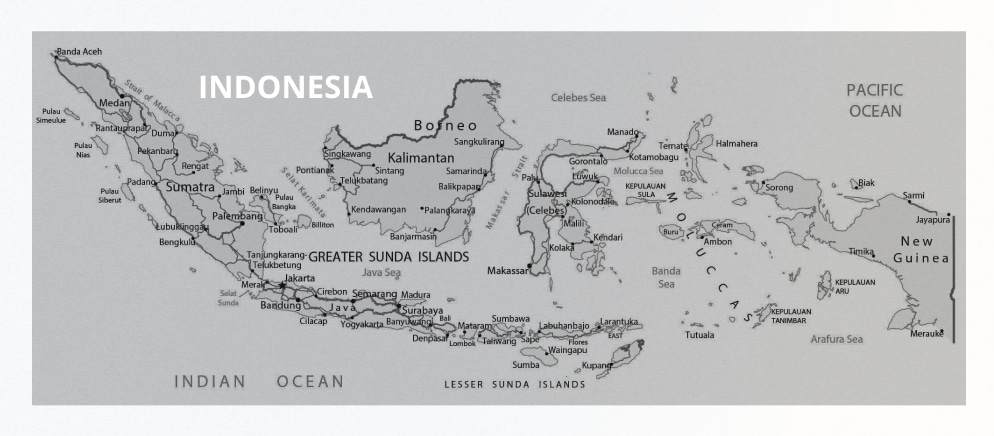Market Spotlight: Indonesia



-
Indonesia is Southeast Asia’s largest economy and ranks 73 of 190 economies on ease of doing business, according to Trading Economics.
-
The country has a wealth of natural resources. Despite some geographical challenges, given its dispersed territory of 17,000+ islands, it is central to a major, global trading route.
-
Doing business in Indonesia is complex; having local partners helps mitigate risk. While it has recently undergone reforms to strengthen infrastructure, attract foreign investment, and develop human capital, change has been challenging given the nation’s deep-rooted protectionist sentiments.
-
Despite longstanding corruption and preferential treatment for local businesses, Indonesia has made significant strides to attract foreign investment. In October 2020, the national government passed an omnibus law to stimulate job creation, spur economic growth and streamline bureaucracy to attract greater levels of FDI. Restrictions for foreign companies in construction services, energy, telecommunications, and transportation were also lifted.

-
Cultural norms directly influence Indonesian business culture. Ethnic, religious, and other cultural diversities require specific customs and traditions. It’s important to research the cultural dynamics of your host or partners so as not to offend them.
-
There is an appetite for luxury and lifestyle products in Indonesia.
-
Indonesia has the largest Muslim population in the world, impacting many parts of the local culture, including the status of women in business and society and the prohibition of alcohol.
-
When greeting a female counterpart, be mindful that – particularly if you are male – they may choose not to accept your handshake; in which case you should nod politely.
-
Indonesians stress organizational success over individual success, so decision-making and communications occur through an organization’s hierarchy and may be lengthy.
-
Building rapport and maintaining relationships are important and often take time and patience. Do not rush the process or you run the risk of being perceived as insincere or selfish.
-
Communication via WHATSAPP is often preferred over email.

-
Access to affordable labor in Indonesia is one of the country’s key attractions for foreign investors. While many Indonesian workers lack the skills necessary to complete more rigorous and complex work, they are incredibly competent in manufacturing, agriculture, forestry and fishing, auto repair, retail, and mining.
-
The lower labor rates in Indonesia directly correspond to the country’s education level, however, many foreign investors find Indonesia as a strategic destination to find the labor to complete lower-value, lesser-complex operations.
-
Indonesia’s unemployment rate is relatively low at 5.83% (as of December 2022), an improvement from 6.49% in 2021, with a minimum wage of 4.64 million IDR per month (equivalent to $302.20 USD).

-
The strong export sector has contributed to Indonesia’s economic stability, instilling confidence in consumers, and driving domestic demand and economic growth as the country continues to attract FDI.
-
Indonesia boasts a stable economy as a prominent Southeast Asian business hub with its inexpensive and large labor force, supply of natural resources (nickel, gold, silver, oil, and natural gas), and its central location.
-
In early 2022, Indonesia experienced tremendous growth in exports, largely driven by increased global commodity prices, but inflation and global recession risk continue to threaten the long-term outlook.
-
Indonesia’s economy is expected to grow by 5.3% by the end of 2023.

-
Indonesia has a low English proficiency, scoring only 80 of 112 countries globally, and 14 of 24 Asian countries on the EF English Proficiency Index. It is important to employ a local interpreter when conducting business meetings.
-
Education levels and access are generally inconsistent and low with less than 10% of those 15 years and older completing a university-level education (and nearly 4% never attending school at all).
-
Schools offer English as a second language, however, in most it is not required until secondary school.

-
The new omnibus law introduced a risk-based approach for business licensing, simplified environmental requirements, and building certificates, including tax reforms and more flexible labor regulations to ease doing business. It also streamlined the business licensing process at the regional level.
-
Indonesia continues to improve conditions for foreign investors and remains attractive to US firms, but bureaucratic challenges remain. Foreign investors should partner with local businesses and utilize local labor, manufacturing, and other service providers to ensure successful operations.


